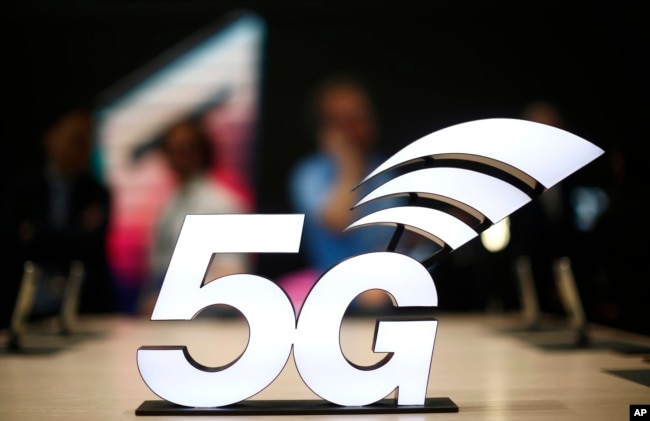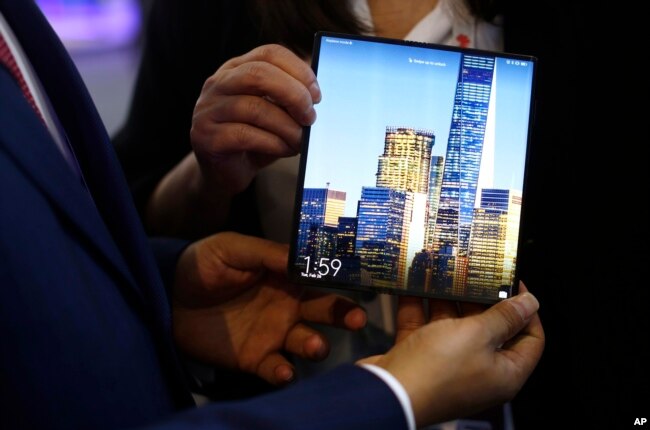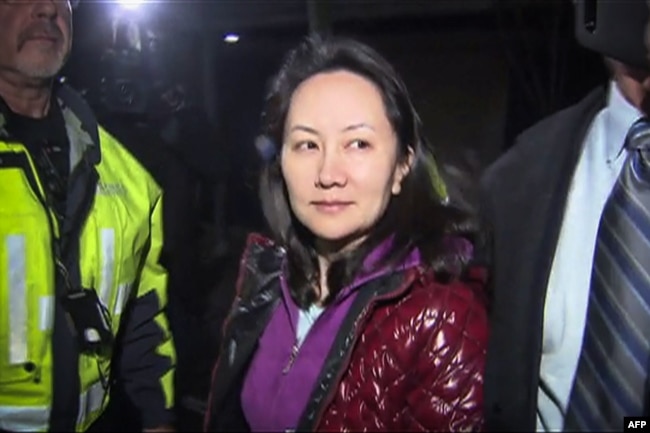Henry Ridgwell/VOA-News
LONDON — Robots, cars, drones and virtual-reality gaming sets connected by cutting-edge 5G networks are among the thousands of futuristic gadgets on display at this year’s Mobile World Congress in Barcelona, Spain.
While there is much excitement over how 5G will transform our everyday lives, the conference is overshadowed by the standoff between the United States and Beijing over the Chinese telecoms giant Huawei, which the U.S. says could be used by the Chinese government for espionage.
Some U.S. cities and parts of Asia are already operating 5G mobile networks. They offer speeds of over a gigabyte per second and low latency — in other words, practically instant connections with no delay.
Experts say that opens up whole new fields of connectivity, from new generations of virtual reality gaming and communication, to remote robotic surgery.
The technology promises to transform not only the mobile phone in your pocket — but also the world around us, says Paul Triolo of the Eurasia Group, who spoke to VOA from the conference.
“The really key aspects of 5G, like some of the low latency communications and massive sensor, massive machine-to-machine communications, that’s more about industry and industrial uses. And that gets into thing like critical infrastructure so you’re going to have a lot more non-personal or industrial data flying around and that really has people concerned. For example, military forces in countries like the U.S. will also leverage large parts of the commercial network,” said Triolo.Chinese firm Huawei is a big presence at the Mobile World Congress and a big player in 5G network technology.
Washington has banned the company from 5G rollout in the United States, citing Chinese legislation requiring companies to cooperate with the state — raising fears Huawei 5G networks overseas could be used as a ‘Trojan horse’ to spy on rivals.
Attending the Mobile World Congress Tuesday, the U.S. State Department’s Deputy Secretary for Cyber Policy Robert L. Strayer urged allies to do the same.
“We will continue to engage with these governments and the regulators in these countries to educate them about what we know and keep sharing the best practices for how we can all successfully move to next generation of technology. I´ll just say there are plenty of options in the West,” Strayer told reporters.
Huawei’s management has said the company would never use ‘back doors’ for espionage — and the Chinese government has dismissed the accusations.
Australia, New Zealand and Japan have followed Washington’s lead and restricted Huawei’s involvement in 5G. Europe remains undecided — but the industry needs clarity, said analyst Paul Triolo.
“The European community in particular and also the U.S. have to clarify what these policies mean, what a ban would mean or what some kind of a partial ban would mean, if there’s really a middle ground that can be found here.”
Vodafone’s CEO Nick Read told the Barcelona conference that banning Huawei could set Europe’s 5G rollout back another two years.
The eye-catching gadgets show the potential that 5G networks are about to unleash. But the question of who controls those netw



